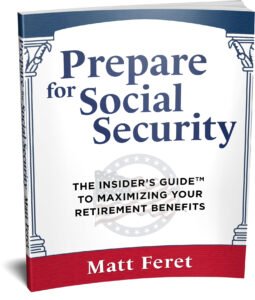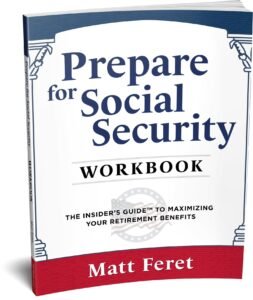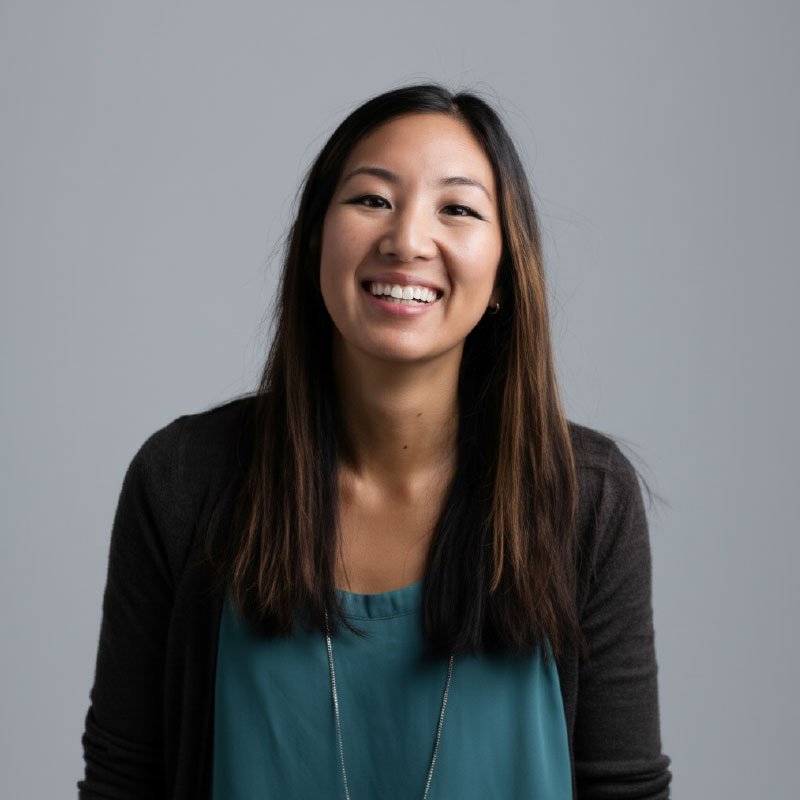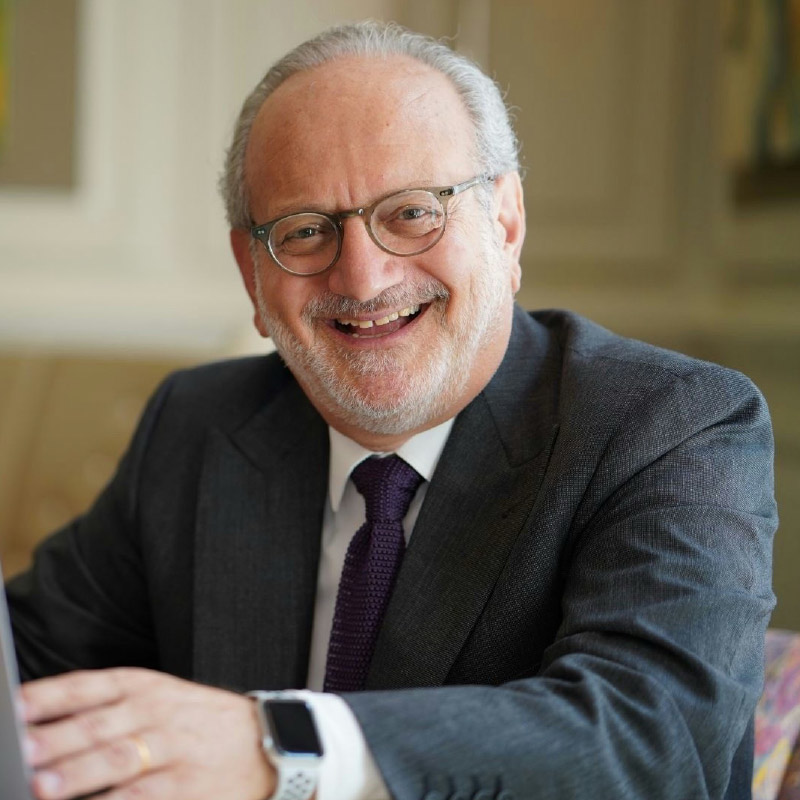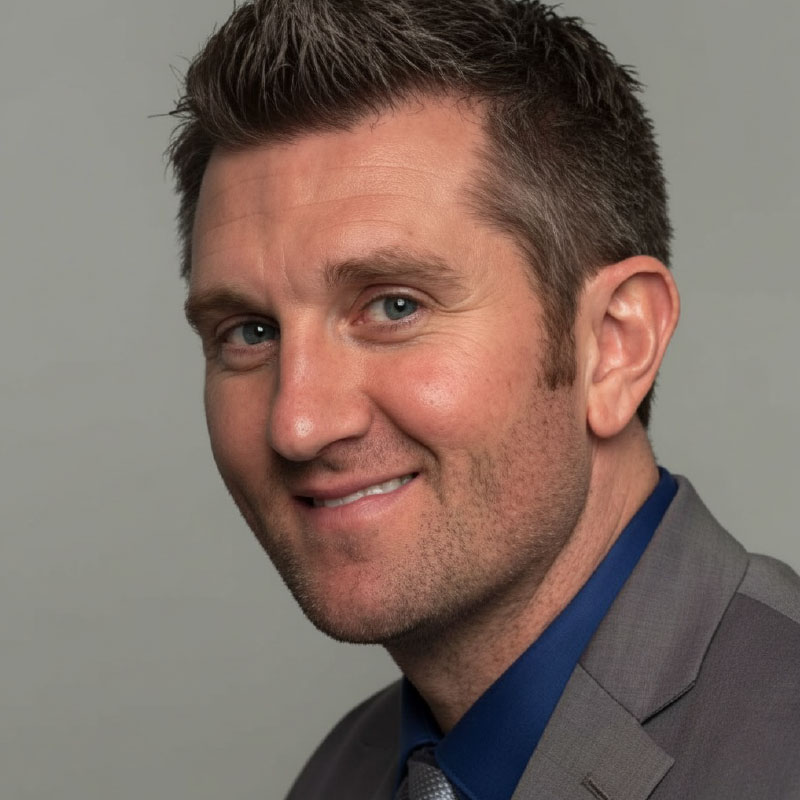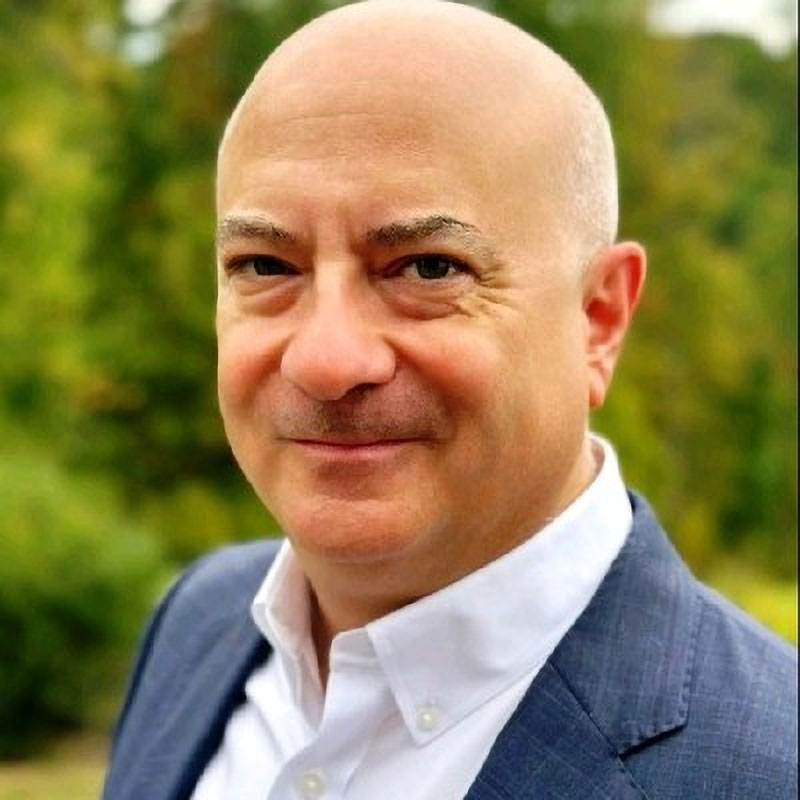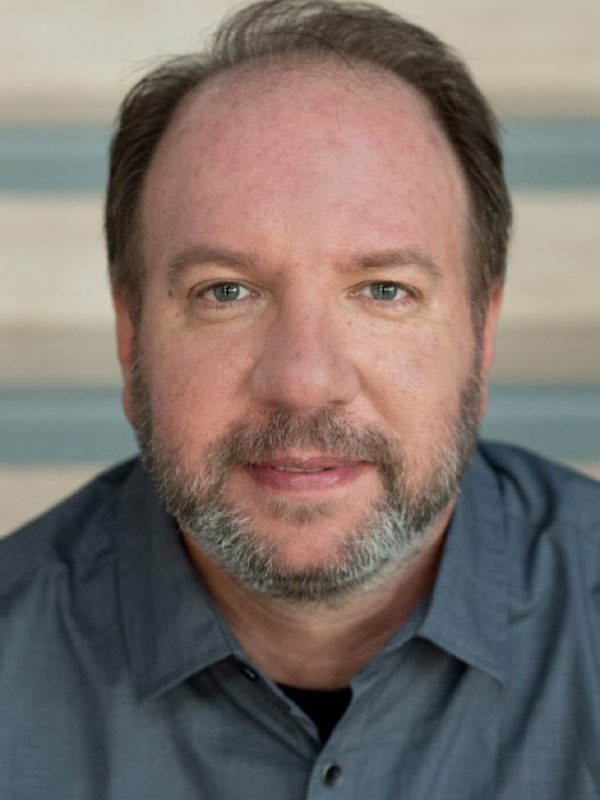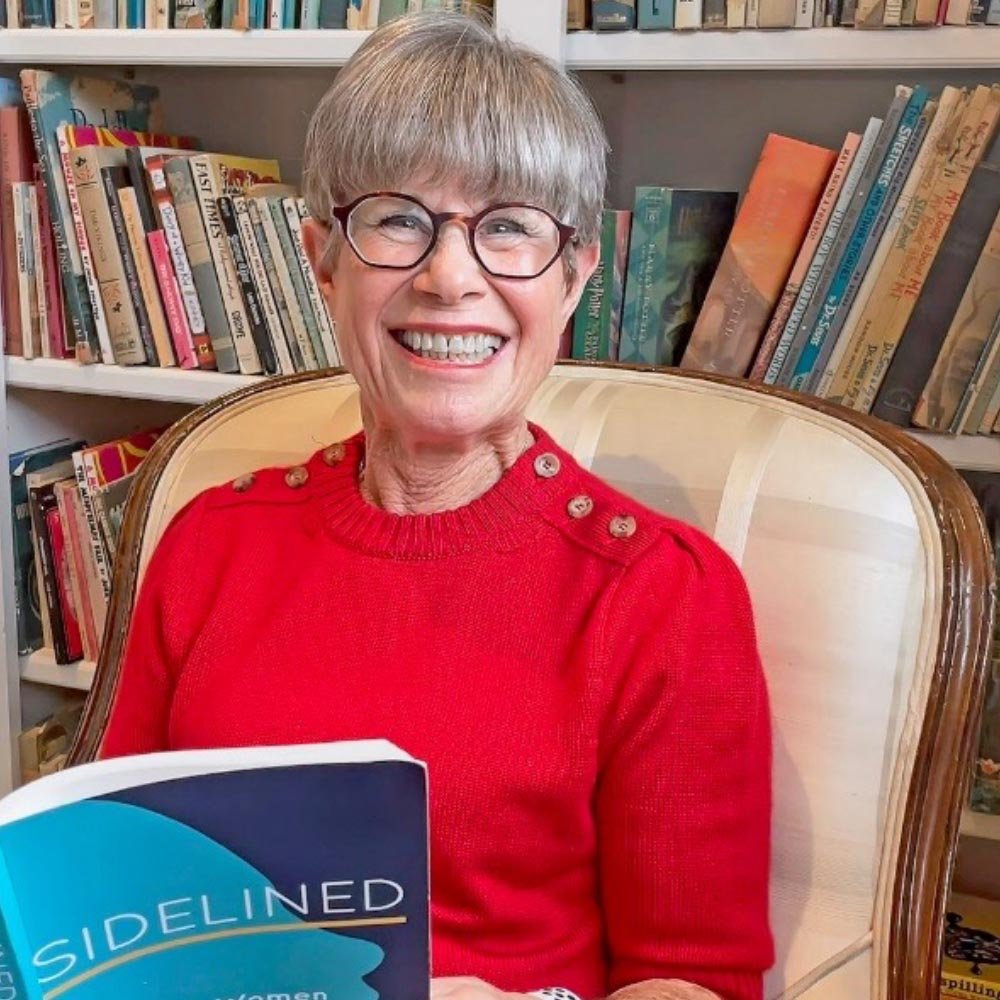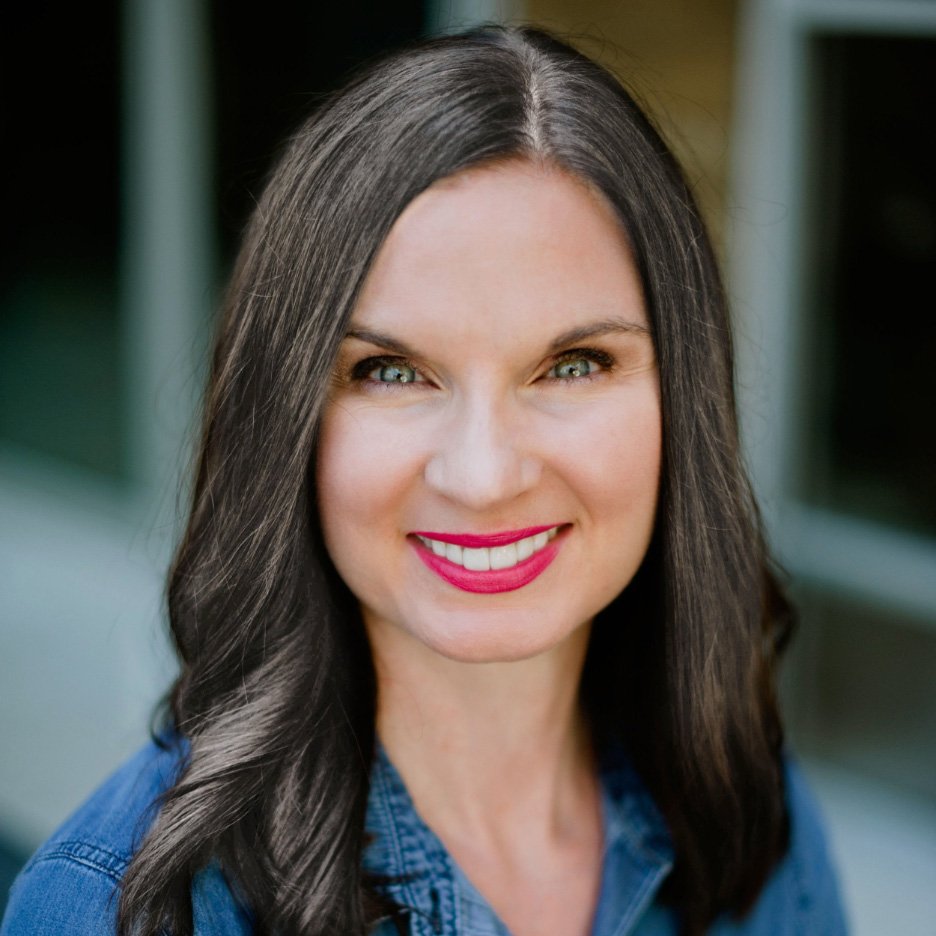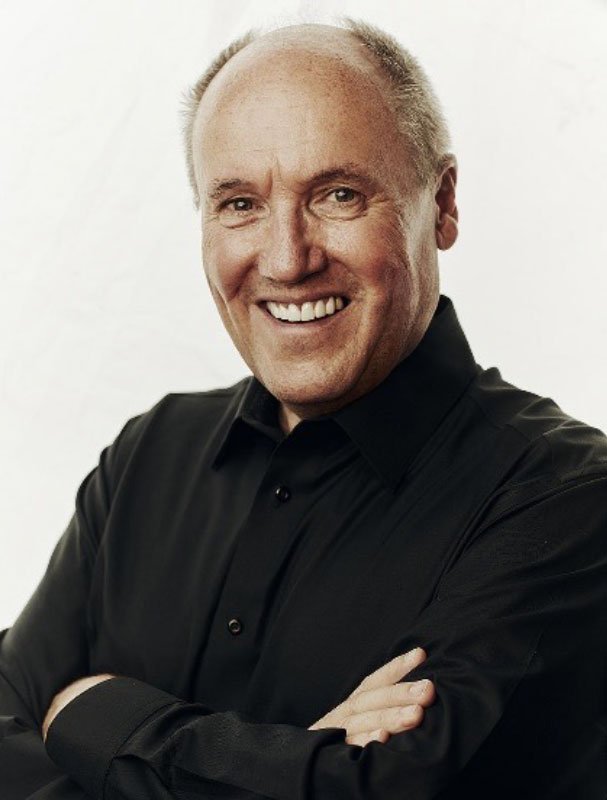#034
Share This:
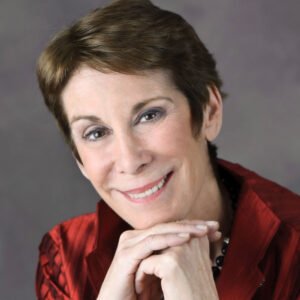
“I love the framework of puzzle because puzzle is a noun and a verb. And as you were just mentioning, Matt, there are these puzzle pieces, finances, health and wellness, relationships, maybe obligations and responsibilities to friends, spirituality, expectations of each other, whether it's in a relationship or just as I said, adult children or friends. All of these things are parts that influence each other, and I think finances and health and wellness are the two biggest puzzle pieces, and it's not going to be a puzzle piece, kind of like a jigsaw puzzle where it all fits together perfectly, but finances and health and wellness will influence many lifestyle choices, where you're going to live, how long you can work, if you still want to work, how you can work. The longer we live, the likelihood is we'll either be a care receiver or a caregiver. So, it's really helpful to think about at ... That's why I say start now. Just think about your life, reflect on your life. What's important to you? What are your values? What do you want to take with you? What are some of your strengths? What are your skills? What do you want to let go of to make room for something new? What do you want to carry forward?”
- Dr. Dorian Mintzer
Health and wealth in retirement are by far the two most important priorities. Yet, imagining what you’ll do when you retire is also a lot of work – and may be a bit scary to dig beyond money and healthcare, but that’s what this episode is all about.
Dr. Doran Mintzer is the co-author of The Couple's Retirement Puzzle: 10 Must-Have Conversations for Creating an Amazing New Life Together. She also hosts Revolutionize Your Retirement Radio podcast.
On this episode of The Matt Feret Show, you’ll get an insider’s guide to her approach to life transitions, the new “middle age” and how and when to start planning out what you’re retiring to! Plus, parallels to not working and the empty nest syndrome and building purpose, meaning, relationships and a sense of community no matter your age.
Enjoy!
Health and wealth in retirement are by far the two most important priorities. Yet, imagining what you’ll do when you retire is also a lot of work – and may be a bit scary to dig beyond money and healthcare, but that’s what this episode is all about.
Dr. Doran Mintzer is the co-author of The Couple's Retirement Puzzle: 10 Must-Have Conversations for Creating an Amazing New Life Together. She also hosts Revolutionize Your Retirement Radio podcast.
Listen to the episode on Apple Podcasts, Spotify, Deezer, Podcast Addict, Stitcher, Google Podcasts, Amazon Music, Alexa Flash Briefing, iHeart, Acast or on your favorite podcast platform. You can watch the interview on YouTube here.
Brought to you by Prepare for Medicare – The Insider’s Guide book series. Sign up for the Prepare for Medicare Newsletter, an exclusive subscription-only newsletter that delivers the inside scoop to help you stay up-to-date with your Medicare insurance coverage, highlight Medicare news you can use, and reminders for important dates throughout the year. When you sign up, you’ll immediately gain access to seven FREE Medicare checklists.
Quotes:
“I think just recognizing that it is important to develop your resilience, to really think about what's important to you, what your values are, what your strengths are, and to think about how you've handled things and feel good and proud of those things and admit mistakes. None of us are perfect, nobody's perfect, but tied into that, forgiveness, gratitude, appreciation, so that you can live life as fully as you're letting yourself do it for as long as we have, whether you have chronic illnesses, terminal illnesses, to kind of do the best you can.”
- Dr. Dorian Mintzer
“I think it's helpful to view retirement as a transition, a journey, which has, again, an ending to open up space for something new, maybe some unknown, and a new beginning. And I think that it's helpful, and it's helpful for your listeners to think about, when you think about transitions in your life, do you have more trouble with the endings, with the unknown, with the new beginning, with all of it, none of it? Because that may help you have a sense of how you're going to deal with some of the changes in terms of what's next in life now.”
- Dr. Dorian Mintzer
#034
Selected Link from the Episode:
Links, Websites and Mentions:
Retirement Coaches Association
Revolutionize Your Retirement Radio
Facebook: https://www.facebook.com/dorianmintzer
Twitter: https://twitter.com/dorianmintzer
Books:
Full Show Transcript:
00:00:00 / 00:54:31
Hello everyone. This is Matt Feret, author of the Prepare for Medicare book series, and welcome to another episode of The Matt Feret Show, where I interview insiders and experts to help light a path to a successful retirement. If you enjoy this podcast, I'd love your support. How? Well, it's simple. Please follow, like, and subscribe to this podcast wherever you're listening to it. Leaving honest reviews and 5-star ratings really helps the show thrive. Thanks. I'm very excited to announce my new book and workbook are live. Prepare for Social Security: The Insider's Guide to Maximizing Your Retirement Benefits can be found on Amazon and other major online retailers.
(00:45):
If you enjoy this show, I'd love your support. Please follow, like, or subscribe wherever you are. Leaving honest reviews and five-star ratings really does help the show thrive, and also helps others discover it. Thank you.
I'd also like to invite you to sign up for the Matt Feret newsletter. I send two a month, full of new you can use, and you can sign up on any of my three websites, prepareformedicare.com, prepareforsocialsecurity.com, and themattferetshow.com.
(00:50):
Finances and your health will influence much of your midlife and later years, but most people quickly find financial freedom, or at least comfort, isn't enough to live a fulfilling later life. Getting beyond health and wealth and imagining what you'll do is also a lot of work, and maybe a bit scary to dig beyond money and healthcare, but that's what this episode is all about.
(01:15):
Dr. Dorian Mintzer is the co-author of The Couple's Retirement Puzzle: 10 Must-Have Conversations for Creating an Amazing New Life Together. She also hosts a podcast called Revolutionize Your Retirement Radio.
On this episode of The Matt Feret Show, you'll get an insider's guide to her approach to life transitions, the new middle age, and how and when to start planning out what you're retiring to. Plus, parallels to not working and the empty nest syndrome and building purpose, meaning, relationships, and a sense of community, no matter your age. Enjoy.
(01:56):
Dorian, welcome to the show.
Dr. Dorian Mintzer (01:58):
Thank you. I'm delighted to be here. Thanks for inviting me.
Matt Feret (02:01):
So tell everybody what you do, how long you've been doing it, and how you help people.
Dr. Dorian Mintzer (02:06):
Okay, well, way back, I actually have been doing this for 50 years, but I then, in the middle of my career, became a coach, so I do some therapy, some coaching, speaking, writing, have a webinar series myself, and I really like to work with people in life transitions, different life stages and ages. And more recently, I'd say for the past couple of decades, I've been working with people in kind of middle age and beyond, since that's sort of where I am in life.
Matt Feret (02:39):
So what does that look like? You said you've been doing it for 50 years, and the last few decades it's working with people in transitions. What does that look like? Talk to me about what that looks like.
Dr. Dorian Mintzer (02:48):
Well, first of all, there are similarities in all transitions, and I really always like to say that, and there are multiple transitions throughout life, and there's always endings, a period of unknown, some people call it the messy middle or the neutral zone, and then new beginnings.
(03:05):
And so for any transition, whether it be leaving a job or getting married or getting out of a marriage, as well as retirement, there's the ending, the unknown, and the new beginning. And so there's similarities, but differences too, because now aging and the notions about aging have been changing, and retirement and notions about retirement have been changing.
(03:29):
So I think it's helpful to view retirement as a transition, a journey, which has, again, an ending to open up space for something new, maybe some unknown, and a new beginning. And I think that it's helpful, and it's helpful for your listeners to think about, when you think about transitions in your life, do you have more trouble with the endings, with the unknown, with the new beginning, with all of it, none of it? Because that may help you have a sense of how you're going to deal with some of the changes in terms of what's next in life now.
Matt Feret (04:04):
So you were mentioning those transitions, and I agree, those are big ones, right? Marriage, death, birth, divorce, remarriage. There seems to be, I guess as you were saying that people around you in some of those things, when you get married, people say, "Go to marriage, premarital counseling." When you get divorced, usually there's marriage counseling involved. There's What to Expect When You're Expecting book, and around when you're having kids, there's a myriad of books, but no one common, not that there needs to be, approach to thinking about retirement or making that transition away from full-time work or a part-time work into the next stage. Is that true? And-
Dr. Dorian Mintzer (04:49):
Well-
Matt Feret (04:51):
Yeah.
Dr. Dorian Mintzer (04:51):
Yeah, not totally true.
Matt Feret (04:53):
Okay.
Dr. Dorian Mintzer (04:53):
There really are, and I didn't mention that part of my career, that I am also a retirement coach, and there are many retirement coaches. There's actually an organization now called the Retirement Coaches Association, and they're retirement coaches really around the globe. And most of us work virtually, even more so since COVID, so that there really is help. And it really is helpful to recognize that retirement isn't just about the money.
(05:25):
There's no question that finances are important, but there's all these other aspects about lifestyle choices, expectations, dealing with a partner if you're in a relationship, dealing with adult children, your parents, if they're still alive. There are many, many issues. And so you're not so alone. I mean, there really are people trying to help you kind of navigate this next stage. It's true that there aren't roadmaps, because now in the Boomer and beyond sort of population, it's a whole new game. The whole landscape of retirement has been changing. So, we're sort of setting the stage for it, and it's exciting times, and it really isn't all downhill unless you want to believe it is.
Matt Feret (06:12):
Well, keep going along those lines. Let's take a pretend person. What age does someone start thinking about this, or does this really come back into a myriad of decisions, how much money they have? You mentioned that's one part of it, obviously, but also health, an involuntary termination, if you will, meaning a layoff. Where do these things normally start, and when should people start thinking about these items, and when, I guess, start planning for them?
Dr. Dorian Mintzer (06:47):
Well, I would say today. So, at whatever age or stage you're at, I really encourage people to start thinking about these things. I mean, interestingly, the person who, Fred Mandell, wrote the forward to the book I co-authored, The Couple's Retirement Puzzle: 10 Must-Have Conversations for Creating an Amazing New Life Together, said that the book should be given to newlyweds. Not that you're thinking necessarily about retirement back then, but part of the book and part of why it's not just for couples, it's for individuals, because we all have people that are important in our life and people we're talking to. So it's important to think about, how do I want to think about it? How do I want to have conversations with people about what my dreams and hopes are for life? At various stages, retirement and the next stage of life being part of it.
(07:39):
It really used to be thought that you reach the pinnacle of your work, like age 60, 62, the more traditional retirement age, and I love this image from a colleague and friend of mine, Bill Sadler, who's a sociologist. He said, "In the old paradigm of aging, you kind of climb to the top of the ladder. You put on your seatbelt, you grab onto the throttle, and you just pray for a safe landing." That's the old notion of aging. Now people are living 20, 30, 40 more years post the traditional retirement age of 62, 65. So there's this vast plateau out there with a lot of hills and valleys, and if you choose, there are a lot of opportunities ahead of you.
(08:28):
So, in terms of your question about when people should start thinking about it, I really think the sooner, the better. Often people don't think about it until they're more midlife, but even that's changing. Having long-term careers doesn't exist as much anymore. People are doing more project work, not being at the same company for as long. There aren't pensions anymore. So, it's not unusual that people even in their forties, fifties, later, it's never too late and never too early.
(09:06):
What I find is that if people start ... The more you know yourself and the more how you deal with transition, that may inform you to say, "I need to start thinking about it now because I'm terrified. Like, who am I if I don't have just my work CV? I don't know what else to do. I don't think I want to feel irrelevant," and you don't need to. And so if you're beginning to have those kind of feelings, it's time to start thinking about it, exploring.
(09:37):
There actually are a lot of really good books out there about this new life stage, and people more and more are talking about 50, 55 to 75 as sort of the new middle age, and that it's not like we're living longer and therefore we're going to be old-old longer. There's this time of being really vital, and opportunities to think about, what are you retiring to and what do you want to take with you? And by that I mean, are there hobbies that you have? Are there interests that you have? Do you do volunteer work, and do you enjoy it? Do you support different causes and get part of groups, whether it be political or social action or climate or whatever, whatever is important to you.
(10:27):
It's so important to start now, whether it be in the thinking about it or developing some of these other hobbies or things that maybe you never had time for before. Now I think there are parallels between not working full-time or not working in the same way, and also the empty nest, when you're no longer active parenting. And I think it's so helpful to begin to think about when I'm not working or when my kids need me in a different way, if I've been so lucky to have kids, how am I going to build connection, engagement, purpose and meaning, meaningful relationships, a sense of some agency, a sense of community into my life? So that's when the planning can start.
(11:12):
One last point about that, that I really like to share with people. I love the framework of puzzle because puzzles are a noun and a verb. And as you were just mentioning, Matt, there are these puzzle pieces, finances, health and wellness, relationships, maybe obligations and responsibilities to friends, spirituality, expectations of each other, whether it's in a relationship or just as I said, adult children or friends. All of these things are parts that influence each other, and I think finances and health and wellness are the two biggest puzzle pieces, and it's not going to be a puzzle piece, kind of like a jigsaw puzzle where it all fits together perfectly, but finances and health and wellness will influence many lifestyle choices, where you're going to live, how long you can work, if you still want to work, how you can work. The longer we live, the likelihood is we'll either be a care receiver or a caregiver.
(12:17):
So, it's really helpful to think about at ... That's why I say start now. Just think about your life, reflect on your life. What's important to you? What are your values? What do you want to take with you? What are some of your strengths? What are your skills? What do you want to let go of to make room for something new? What do you want to carry forward?
(12:40):
And if you happen to say, "Oh, I don't have any other interests, my work has been my life," think, if you can, think about what were some of the things you really loved to do when you were younger that you just never had time for, or who were people that you admired that were doing some things that seemed kind of cool or interesting? It's never too late and it's good to start now, even while you're still working, to develop some of these things and then you can take them with you.
Matt Feret (13:09):
When you were saying all that, I was smiling and going, "That sounds like a really good idea." And then right after that, my brain went, "Oh my gosh, that's a lot of introspective work." Now I might be a little scared to find that I don't have the hobbies I thought I wanted to have, or I don't know the answer to any of those questions. That's a lot of learning, that's a lot of evolving, that's a lot of self-reflection, and you help people through that. Is it difficult? Is it as difficult as I just described what my brain did in the last 30 seconds for everybody as it probably would be for me?
Dr. Dorian Mintzer (13:44):
Probably. I mean, we're all different, but it's amazing how even when we want to look at things, it can feel like a internal war inside that we fight against it, because there really are obstacles.
(13:58):
A few kinds of helpful hints maybe for some of your listeners, just start with thinking about, what are three to five things I'm really proud of that I accomplished, and why am I proud of it, and what was it, and how did I feel about it? Think about three to five things that were sort of peak experiences. Who was there? What were they? What are things that really make you happy, that really get your juices flowing?
(14:31):
It's really helpful to think about that. And it may feel like you're kind of dredging things up, but hopefully you can get in touch with the things that really make you happy and that you're proud of. They may be different things. Some things that make you happy may not necessarily be things you're proud of but let yourself think about those things. That's the beginning of self-reflection. Think about what are maybe three to five things you might need to let go of to move forward in this next stage of life? What are maybe three to five things that might be gains? So let yourself think in those kinds of ways.
(15:10):
Another little exercise that I think can be helpful is just taking time and making what's called a timeline for some self-reflection. You can take a poster board or a piece of paper, draw a line through the middle, and put down your birth year and then maybe put a hundred at the other end, and divide it into decades, so every 10 years, and it's really helpful to then ... You can do it in a number of ways. You can write down what were the events in each decade that sort of influenced you. They could be world events, they could be events in your family, but what were events that happened? Who were the people during those different decades? What were things you did or learned or were aware of during the decades?
(16:00):
And it helps you begin; it gives you a kind of a roadmap of beginning to reflect on how different things impacted you. And on the underside, the lower part of the line, you can put, if you choose, this is sort of pushing a little deeper, as you're saying, but you can choose, what were the things I had to push away that I didn't have time for? Or what were the messages I got at different stages of my life? Were there messages of, "Don't make people angry," or, "Be nice to everybody. Don't get angry"? I mean, were there things that got pushed into the shadow that maybe at this stage of life you want to revisit and say, "Hm, you know, maybe I want to become more whole now. I want to not push away different parts. I want to understand parts, and I'm not just getting older, I'm feeling more whole. I'm integrating some things I just never had time for before."
Matt Feret (16:58):
Touching back on part of our earlier conversation, the difference between single, solo thought and introspection or self-reflection and couples. If you have a spouse or boyfriend, girlfriend, whatever, you're in a couple, at what point do you start ... Do you start by yourself? Do you start as a couple and then transition to yourself? What's your recommendation there if you've got a significant other?
Dr. Dorian Mintzer (17:28):
That's a really good question. Now, again, there's no right way. I mean, some couples are able to communicate, and they talk really well with each other and start talking together as a couple. Many couples don't, and I think I mentioned in the first part of my book or the book I co-authored, it's communication 101. It's like learning how to have conversations, how to bring up difficult issues.
(17:53):
I think what is important, even if you're in a relationship, that you really let yourself puzzle it out yourself and create some of your own vision, what's important to you, around some of these different areas of your life. And have your partner, again, whether it be a married partner or a partner, significant other, or friend or whoever is important to you that you want to do some things with during life and/or separately, to have your partner do that. And then part of the conversation can be creating a little bit of what's called a shared vision, where you really share with each other, "These are things that are important to me, these are things important to you. What are some things we might want to do together? What are some things we want to do separately?"
(18:43):
I honestly believe that people, it's not as healthy to be totally connected at the hip. I think that it is important to have some of your own wishes and dreams and your partner, and there may be ways of accomplishing it together. I like to say often in couples, people can get into these polar positions of my way versus your way, win versus lose. So, if you're in a relationship, try to think ... make a space for the “we” of the relationship, whether you're married or not married or a friend or whatever, and think win-win. So, when you're at the point of trying to think about what you each want to do or areas you may have to compromise on, think about sometimes it may be your way, sometimes my way. It's not going to balance one for one, but if it gets too lopsided, you can end up feeling taken for granted or angry.
(19:40):
But there's a richness in conversations. If both of you can talk together, great. Start talking. But you may discover one or the other of you is going to lead, sort of like a dance. You know, you take the first few steps and you hope this person who's important to you follows along or maybe changes the steps a little bit. And if there's problems with it, that may be an indicator of it's time to get help. Or, I mean, I have to say that the book I co-authored, and there are other books too, but the book I co-authored initially got reviewed as saying it's kind of like a counseling session in a book because it's got, not homework, but it's got what we called fun work, things to think about together or talk about together, and ways to try to create your vision and talk about how to share your vision with each other and figure out what you want to do.
(20:39):
But it is important to think about expectations and time alone and time together. When people aren't working in the same way, or both of you aren't working anymore, maybe both of you were and you're not, or you're working part-time or consulting or doing volunteer work or not working at all, but even how you negotiate leisure activity. It is helpful to talk about it so that ... I mean, inevitably we disappoint each other in relationships and friendships, but there's less of it if you can talk a bit about it so that if, say I'm expecting that we're going to be 24/7 together after you're not working anymore, that may be a disappointment because you might have some different viewpoint or you may want me to be a social secretary for you, and I may not want to do that. I may want to make sure you've got some of your own friends. So, kind of talking about these things kind of leads to a, I think a happier, less strife second half of life.
Matt Feret (21:53):
Those are definitely words of wisdom. Really, really good advice. We talked about this before we started the interview. There was an article, oh, I don't know, a month or two ago in The Wall Street Journal that said, I think the title was essentially When Do People Start Feeling Old?
(22:13):
And of course, there was an age attached. And I'm in the Medicare and Social Security area, right? And there are dates ... You know, 65, Medicare, right? 62 to 70, Social Security. There's all these dates and all these ages that we were talking about the other day, my wife and I, when we get our senior discounts. I mean, at some places it's 65, you get a free coffee if you order a hash brown.
(22:38):
So there's all these dates out there that seem to give indicators that you're old. When people at the same time are working longer, I think the latest stat I read was that it's almost 50% of the people now out there are not taking Medicare at age 65 because they're still working and they still have health insurance through their employer, so it's changing. How would one balance this societal billboard of, well, 55, 62, 65, 67, and not feel old, and continue to think about life and work or part-time work? How do you suggest people balance these things out when they're getting all these messages, yet they don't feel old, they're still productive at work and still enjoy it, [inaudible 00:23:34] are doing well. How do you help people or what's your advice for people to confront that stuff?
Dr. Dorian Mintzer (23:41):
It's such an important area and question. So, I think what's important is so much of the ages and stages were really based on when we had a shorter life expectancy and a shorter health expectancy. We have so many medical advances now, and the expectation now is that we're going to live maybe near 100. 85 is the fastest growing segment of the population. But there are a lot of myths out there, and it's hard, we were talking a little bit earlier, it's hard not to internalize some of these notions about aging, which really are unfortunate, but they exist.
(24:31):
I mean, we live in an ageist society where people ... It used to be people over 60, kind of that metaphor I gave before about holding onto the throttle and praying for a safe landing. But you're absolutely right, middle age is a time of being vital. It isn't all downhill. But if you view old as total losses, then you're going to allow yourself to age by default, by the societal definitions.
(25:07):
And I think even the notion when people say 60 is the new 40, or 70 is the new 50, even that is internalized ageism, because 70 is the new 70, and 60 is the new 60, and 80 is the new 80. And I think it's helpful to confront some of the myths. There are myths that say, oh, older people can't learn the computer, or older people can't work because they move too slowly. I mean, there's so many myths about what getting older is, and if you internalize it, you're actually kind of fighting against your future self.
(25:50):
For example, say you see two older people sitting on a bench, and you look at them, so is your notion, "Oh, those two poor old people, they must be so tired, they just have to sit there, and they have nothing to do"? That's one view where maybe that's the internalized ageism, or you might look at these two people saying, "Oh, how nice that they're taking a break. They look like they've probably been out and about, and there's so many things to do when you don't have all the pressure of work on you." I mean, it's maybe a silly example, but if you look at older people with the, "Oh, I don't want to be that way," again, that's against your future self. If you really let yourself say, "I want to grow older as best as I can," then you're trying to help yourself.
(26:40):
I mean, there's a study, couple of studies that are helpful, I think, for people to hear. One is by the age of 65, it's 30% genetics, which is big if you have some genetic things, but 70% of things you can have some control over. Exercising your body and brain, good nutrition, meaningful relationships, connection, engagement, purpose and meaning, a sense of self-esteem, being part of a community. And there's actually another study out of Yale by Becca Levy which says that a positive attitude about aging really can give you seven and a half more years of life. And by a positive attitude, what people refer to and what I like to refer to is kind of what's called a growth mindset versus a fixed mindset.
(27:35):
A fixed mindset may be the more internalized view of aging, like, "Oh, it's all downhill, I can't learn anything new, I can't do anything, just put me out to pasture." But a growth mindset is, "Oh, I have time now. I didn't have time before. I want to learn to play the piano, or I want to learn a new language. I want to do things that both will help my brain and just help me feel better. I want to spend time with people younger than myself." Intergenerational connections are really important. "I want to keep learning. I never had time to read. I want to read." Or if you're having trouble with your eyesight, Audible or books on tapes that you could get either a subscription for or libraries now make these available to you. Books, Audible.
(28:30):
There are wonderful lifelong learning programs too, all across the country, and actually, in Europe also. In Europe, they're Third Age Universities. In our country, in the United States, there are many that are called Osher Lifelong Learning programs because they initially, the money for them initially came from Bernard Osher. But there are many that are separate from that too, where you have a nominal fee and you're part of a community, and then in general you often pay an extra fee for some classes. You can teach classes; you can take classes.
(29:10):
Before COVID, I was going to one of the universities and taking a film class. We would all watch a film together and then talk about it. It was wonderful. And it's continued online. I've just been working more since COVID had started, so I haven't had as much time. And there are adult education programs in high schools or community colleges.
(29:33):
So, lifelong learning, or now people are saying learning lifelong, keeps your brain going and helps you have this more positive mindset and growth mindset so that you don't just internalize that it's all downhill. It's a shame, and sometimes people will come in and have such negative feelings about themselves, and so part of the work is thinking about some of those questions I mentioned before, trying to really get more in touch with the positives about yourself.
(30:10):
But change is hard, and it's important to know that there is grieving involved at different points of life. There may be grieving of, well, you mentioned before, Matt, I mean, not working might not even have been your choice. There may have been downsizing or your health issues made it clear that you couldn't do what you were doing. But the interesting thing is there's still a lot you can do. People can have a positive growth mindset with chronic illnesses, with terminal illnesses. It really is really trying to appreciate, feel gratitude for what you can do. I like the term optimistic realism. No matter how well we take care of ourselves, we all are going to get older, and we all will eventually pass away and die.
(31:03):
Personally, I think that knowing that can make life feel even more precious because we know we don't have forever, and the older we get, we know there's less time ahead, and that can really be a downer and that can help you begin to go down a rabbit hole. But the important thing is to try not to do that and to think about, how do I want to use the time I have as fully as I can, interacting with people of all ages, maybe using my strengths, maybe using my skills, thinking about my legacy, smiling at people when I'm out?
(31:43):
I mean, and I know COVID made it so much harder because these last few years we've all been so isolated, and COVID is not gone. But luckily, the strains seem to be not as difficult, although I keep hearing every day about people still getting sick. But things are opening up again, and people are starting to travel again. And so you may have to change some of your hopes and dreams with whatever's going on in the world or your health, but you still need hopes and dreams. We still need something that gets us out of bed in the morning and helps us really appreciate being alive, being out in nature, being able to really feel that sense of gratitude and forgiveness.
(32:37):
Often, tied into your question before, sometimes we can just be our harshest enemy, our own self-enemy because we're upset about things we didn't do or things we didn't say. Some of those things can be rectified now. Think about it. I mean, even if somebody's not alive, writing letters to them, being able to say how you felt or wished you could have said, or if people are still alive, think about, what are some relationships maybe you want to try to repair while you can? And forgiving ourselves, forgiving others, gratitude.
(33:12):
Tied into that, there's one question that I often ask my clients, and it actually is an offshoot of a series of questions that George Kinder, who's a financial life planner, has developed. I really liked the last one and I changed it a tiny bit, but it's, if you went to the doctor and you were told you had 24 to 48 hours to live, what would you regret never having done or said? I think that "Or said," is important, and I kind of added that part.
(33:46):
And it's helpful to think about, and many people, when I've said this to clients, when I've said it when I've given talks, say that it's a profound question because it's like we don't know when our end is and you don't want to wait till the end. So think now about, what are some of those things that you would like to do or say or repair, and come back to your age now, whatever that is, and start thinking about what you want to do so that hopefully you won't have a lot of regrets at the end.
(34:20):
And people say, "Well, I don't know what I want to have on my bucket list," so don't have it be a bucket list. Let it be a curious list. What are things that you're curious about, that you'd like to learn about? Even articles, like you mentioned, just seeing an article in the paper. What are things that you'd like to learn?
(34:38):
And many older people are fine on the internet and have ... I mean, I still at times consider myself technologically challenged, but I can work with it enough to have Zoom, to research things. There's so much to learn, whether it be virtually or in person, although I think the in person is important, and there's an epidemic of loneliness, so I really encourage people to interact with people and not buy into these negative stereotypes of aging. That was a long-winded answer, sorry.
Matt Feret (35:17):
No, no, that was a great answer. And, the very last part of it was something I was going to ask you next, and it's [inaudible 00:35:23] to do with the word loneliness, you said. I think we've all, I, personally, I've seen people who have retired from long careers and slip into, I guess you could call it depression, slip into some sort of loneliness. And I mean, it could be a myriad of reasons. Not planning, as we've been talking about, could be one of them. And I think, and I'd love to hear your take on this, I think it's getting better, but this whole concept of identifying your self-worth through your work, and once that's gone, not having a sense of self-worth.
(36:07):
Is that still a ... I mean, again, my generation or even generations beneath me, I mean, we've heard this concept quiet quitting, right? Which is just a new ... Same concept, repackaged in a new ... Basically take care of yourself, don't give 185% for 45 years, and it's a balance piece, if anything, in terms of what I can take from it. But is that part of the current generation of 50s, 60s, and 70s? Is that more of the older generation, or is it generation agnostic at this point and there's still folks out there not finding fulfillment when literally their entire working career has been fulfillment of a different kind?
Dr. Dorian Mintzer (36:53):
It's, again, a really important and powerful question. I think loneliness cuts across a lot of different ages. I think that the surgeon general's recent report about loneliness as an epidemic is really true. And I think that COVID exacerbated it because of the isolation.
(37:19):
There is a dark side to the not working, particularly if your whole identity has been work or active parenting, and it's a really slippery slope that people can go down, depression, overuse of alcohol or drugs, and it hits older people and it hits younger people. And I do think that it's not unique just to the 50 and older, although I think it's definitely a dilemma there because, if you think about it, more older people might have had careers or longer term in work, so there was less moving from job to job.
(38:04):
And as you said, if your identity and self-worth has only been the CV, it can feel like so much of a loss and just not even knowing if you have the bandwidth to develop new friendships. I mean, this is a bit of a stereotype, but often men say that most of their friendships and activities are through work, and I've had more men than not say to me, "I'm terrified of not working because I don't know how to make friends."
(38:37):
So, that's part of why it's helpful to start thinking about developing some other interests or making friends or learning new hobbies. Pick up golf or pickleball or tennis or just walking, hiking. And there are Meetup groups, or there's organizations where you can join with others to do some of these activities. I really encourage people to do that.
(39:06):
The interesting thing is that, as there've been some studies of how people have dealt with the pandemic, older people actually did better. The old-old, some who've been in nursing homes and institutions, certainly we've seen illness and the nursing homes have been like Petri dishes in terms of COVID. But people in the more extended middle age or younger old, want to call it that, actually thrived better in many respects during COVID because we've been used to all the different ups and downs, and there's a resilience.
(39:45):
Studies have said that those in the younger areas, in the 40, 50, 30, 20, and definitely younger kids, really had a much harder time, particularly parents that had kids at home and were having to do homeschooling and working remotely. It's been a terrible time. But I do think that ... Or I should say, and I think that loneliness cuts across different ages and stages. I'm happy to see that people, both, I guess, in your generation and younger, are focusing more on sort of self-help and recognizing the importance of it or self-helpers, taking care of oneself. But I think it's still an issue. It's going to be a different trajectory because work now really isn't long-term kind of work, other than some professions. I mean, in psychology, it can be. In medicine, law, a few others, but-
Matt Feret (40:53):
Yeah, not business, that's for sure.
Dr. Dorian Mintzer (40:54):
But not business. And if you look at younger people, people have so many different jobs in a lifetime, and you may be reinventing yourself many times along the way, in contrast to somebody who's had maybe one long-term job, and now the reinvention comes at this stage of, who am I now? What do I want to do?
(41:20):
Some people talk about the second half of life, that extended middle age as a second adulthood, and some even have coined the term “middlescents”, sort of as a parallel of adolescents. Adolescents, the concept, the term is a hundred plus years old, and it was recognizing that there was this gap between somebody being a younger adult and then an adult, and so adolescents filled the gap. You're dealing with, who am I, what do I want to do, where do I want to live, what's important to me?
(41:58):
Well, fast-forward to “middlescents”, and hopefully, as we're older, there's more perspective, more experience, but similar questions, who am I? You look in the mirror and it's like, "Oh my gosh, who is that person looking back at me? Where do I want to live? What do I want to do? What's important to me?"
(42:18):
So, parallel issues, but hopefully, with some added perspective of having lived through a lot of ups and downs, so you know you can. So, it's interesting to think about it that way, but I think loneliness, isolation, if ... You don't want to go down that rabbit hole of the depression and too much drinking, drug use, and it's real. So if you begin to feel like your world is shrink shrinking, it's really important to get some help or talk to a partner or a friend and/or think about, as I said before, what were some things that you really loved doing when you were younger that you just haven't had time for? Or what are new things you want to learn?
(43:11):
Try to, little by little, step by step, and don't expect you're going to go from A to Z without the little steps in between of the rest of the alphabet. So, one step, even getting yourself to the gym, don't expect you're going to suddenly go five days a week and then you don't do it. Start with one day a week, and you can add it to two days, or think about the piano, or think about learning a language. There's so many vehicles of doing things. Or woodworking, or some kind of craft or art. For people older ... I mean, I know people don't always like the word senior, but there really are great senior centers that have wonderful activities, which do two things. One, you can learn a new skill, hobby. Plus, you can connect with other people, and they're starting to be more in person again now, not just virtually.
Matt Feret (44:06):
Right. You mentioned the phrase, "The dark side of retirement," and of course, I immediately heard the Darth Vader music when you said that. Let me just touch on that briefly before we wrap here, again. Very in the beginning of the show, I even, I think I said, "Wow, that's a lot of introspection and a lot of self-reflection and a lot of being honest with oneself and your spouse or your partner or your friend." The concept of gray divorce is also in the headlines that it would seem to me that this type of inventory, I guess, no matter where you start it, it might bring up some issues. Have you had experience with that, either advising couples or individuals? And is there a piece in there that people pause and I guess fix or address other things before moving on? What's your experience around that piece? Because it's a very real thing.
Dr. Dorian Mintzer (45:07):
It is a very real thing, and I think it comes in a number of ... influenced by a number of things. One is, now that we're living longer, people who reach middle age, and maybe if there've been kids, if the kids are gone, suddenly say, "I don't want to have 40 more unhappy years. We don't have anything in common anymore." And another factor is there are more women in the workplace who aren't feeling as financially dependent on a partner, and so feel that, again, "I don't want to necessarily be in a bad relationship."
(45:43):
I really encourage people to not throw in the towel immediately without maybe doing some soul-searching or some work to see, excuse me, if some of the issues can be worked out. And sometimes they can, and sometimes not. But it is helpful. We take who we are with us, wherever we live or changing in life. Sometimes that new beginning can be terrific and a really wonderful opportunity of starting over, and sometimes it can end up being harder than one had anticipated and could create other difficulties and problems.
(46:28):
So I think if you're in a situation where there's been a lot of unhappiness or tension and you're ready to just say, "I'm done," I do encourage people, take a little time to really sort it through. And sometimes even a few sessions with a therapist can even help the ending be better, if in fact you know it's time to move on with a therapist or with a coach. And to then allow yourself, and there's a part in the book too called Detours, we can be going through life and think we're going to continue the same way, but then people get divorced, or people die, and suddenly you need to reassess and rethink about, who am I? What do I want to do? What do I want to do alone? How do I want to meet other people?
(47:30):
A marriage ending doesn't mean it's an end of life. Retiring doesn't mean it's an end of life. Even a death of a very loved partner or spouse or dear friend doesn't mean it has to be it's an end of your life. It can feel that way at times, in part of the grieving. But I think a real affirmation of love is that you go on living. A real affirmation of your own inner strength is you find other things you want to do or you find other people, and you might have to kick yourself in the butt a little bit to get out there to meet people or do activities that give you pleasure. And then there's an opportunity, maybe you'll develop some new friendships or be able not to go through the rest of your life alone.
(48:22):
And dreams and hopes may have to change, but I think it is important to ... It's like taking yourself seriously in a sense of this is all we have, as far as we know, this one life, and to really think about how do you want to live it as fully as you can and not reach the end with regrets.
(48:44):
And so part of it is getting to know yourself, getting help, asking for help if you need it. Sometimes that's hard to do. Sometimes people view asking for help as a weakness. Personally, I view it as a strength because we all need each other. We're interdependent with each other. Getting help doesn't mean you're going to lose being independent. It just means you bring your independence to somebody else who's independent and you kind of co-create together or work on the problem together.
(49:17):
So I would encourage listeners to recognize getting help is a sign of strength, and yeah, it may be time to move on from a really difficult relationship, and it may be important for you to do some work to just be sure, to the best of your ability, you're doing what makes sense to do and that you get the help you may need to help make it work.
Matt Feret (49:47):
Thank you. This has been a really fun, and I mean that, fun conversation. I hope everybody was doing, as you were listening or watching, the same thing my brain was going was, "Oh. Oh. Oh, yeah." I mean, there's a lot that we don't think about on a day-to-day basis or maybe even don't want to think about, and they're very, very important, and a lot of you ... not just when you're thinking about retiring in a week. So, thank you very much for this. Are there any questions that I should have asked around this topic that I didn't?
Dr. Dorian Mintzer (50:19):
I think you've really covered a lot. I think just recognizing that it is important to develop your resilience, to really think about what's important to you, what your values are, what your strengths are, and to think about how you've handled things and feel good and proud of those things and admit mistakes. None of us are perfect, nobody's perfect, but tied into that, forgiveness, gratitude, appreciation, so that you can live life as fully as you're letting yourself do it for as long as we have, whether you have chronic illnesses, terminal illnesses, to kind of do the best you can. I think that would be sort of my advice.
(51:10):
I'd like your listeners also to just know, if it's okay, to know that on the fourth Tuesday of each month, I have a free, I call it Revolutionize Your Retirement Interview with Experts series. It's free, it's open to the public and professionals. You just have to sign up the week before. You could go to my website, revolutionizeretirement.com, and learn about past speakers. And actually, it's in its 11th year now, and to celebrate my 10th year anniversary, I've released weekly podcasts of prior interviews so people can actually get an opportunity through podcasts to listen to many of the prior interviews. And so, I encourage people, there are a lot of issues about aging, work, working in the second half of life. So, I just encourage your listeners to take advantage of that, since it's free and out there.
Matt Feret (52:08):
And I will again put all of those links on the website so people can go to the website, but yeah, I'm glad you said that. I was going to ask you, how do people find you on the internet and listen to you and watch you? So, I'm glad you did that. Dorian, thank you so much.
Dr. Dorian Mintzer (52:23):
It's been such a delight, Matt. Thank you so much for inviting me here.
Matt Feret (52:27):
Dorian, thank you. If you liked this episode, please follow, like, subscribe, and rate the show and make sure to hit The Matt Feret Show website for all the links and show notes. Until next time, to your wealth, wisdom, and wellness, I'm Matt Feret, and thanks for tuning in.
(52:46):
The Matt Feret Show, related content, publications, and MF Media, LLC is in no way associated, endorsed, or authorized by any governmental agency, including the Social Security Administration, the Department of Health and Human Services, or the Centers for Medicare and Medicaid Services.
(53:03):
The Matt Feret Show is in no way associated with, authorized, approved, endorsed, nor in any way affiliated with any company, trademarked names, or other marks mentioned or referenced in or on The Matt Feret Show. Any such mention is for purpose of reference only. Any advice, generalized statistics, or opinions expressed are strictly those of the host and guests of The Matt Feret Show.
(53:25):
Although every effort has been made to ensure the contents of The Matt Feret Show and related content are correct and complete, laws and regulations change quickly and often. The ideas and opinions expressed on The Matt Feret Show aren't meant to replace the sage advice of healthcare, insurance, financial planning, accounting, or legal professionals. You are responsible for your financial decisions. It is your sole responsibility to independently evaluate the accuracy, correctness, or completeness of the content, services, and products of and associated with The Matt Feret Show, MF Media, LLC, and any related content or publications.
(54:02):
The thoughts and opinions expressed on The Matt Feret Show are those of the host and The Matt Feret Show guests only and are not the thoughts and opinions of any current or former employer of the host or guests of The Matt Feret Show, nor is The Matt Feret Show made by, on behalf of, or endorsed or approved by any current or former employer of the host or guests of The Matt Feret Show.


